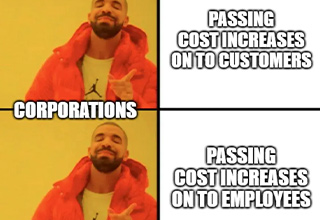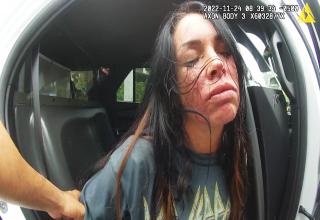Conspiracy Theories
Source: http://www.sovereignty.net/p/gov/gganalysis.htm
Our Global Neighborhood
Report of the Commission on Global
Governance
(ISBN 0-19-827998-1; Published by Oxford University Press, 1995)
A Summary Analysis by Henry Lamb
(First published in eco-logic, January/February, 1996)
The Commission on Global Governance has released its recommendations in preparation for a World Conference on Global Governance, scheduled for 1998, at which official world governance treaties are expected to be adopted for implementation by the year 2000. Among those recommendations are specific proposals to expand the authority of the United Nations to provide:
Global taxation; A standing UN army; An Economic Security Council; UN authority over the global commons; An end to the veto power of permanent members of the Security Council; A new parliamentary body of "civil society" representatives (NGOs); A new "Petitions Council"; A new Court of Criminal Justice; (Accomplished in July, 1998 in Rome) Binding verdicts of the International Court of Justice; Expanded authority for the Secretary General.
These proposals reflect the work of dozens of different agencies and commissions over several years, but are now being advanced by the Commission on Global Governance in its report entitled Our Global Neighborhood (Oxford University Press, 1995, ISBN 0-19-827998-3, 410pp).
The Commission consists of 28 individuals, carefully selected because of their prominence, influence, and their ability to effect the implementation of the recommendations. The Commission is not an official body of the United Nations. It was, however, endorsed by the UN Secretary General and funded through two trust funds of the United Nations Development Program (UNDP), nine national governments, and several foundations, including the MacArthur Foundation, the Ford Foundation, and the Carnegie Corporation.
The Commission believes that world events, since the creation of the United Nations in 1945,
combined with advances in technology, the information revolution, and the now-global
awareness of impending environmental catastrophe, create a climate in which the people of the
world will recognize the need for, and the benefits of, global governance. Global governance,
according to the report, "does not imply world government or world federalism."
Although the difference between "world government" and "global governance" has been compared to the difference between "rape" and "date-rape," the system of governance described in the report is a new system. There is no historic model for the system here proposed, nor is there any method by which the governed may decide whether or not they wish to be governed by such a system. Global governance is a procedure toward defined objectives that employs a variety of methods, none of which give the governed an opportunity to vote "yes" or "no" for the outcome. Decisions taken by administrative bodies, or by bodies of appointed delegates, or by "accredited" civil society organizations, are already implementing many of the recommendations just published by the Commission.
The Foundation for Global Governance
The foundation for global governance is the belief that the world is now ready to accept a "global civic ethic" based on "a set of core values that can unite people of all cultural, political, religious, or philosophical backgrounds." This belief is reinforced by another belief: "that governance should be underpinned by democracy at all levels and ultimately by the rule of enforceable law."
The report says: "We believe that all humanity could uphold the core values of respect for life, liberty, justice and equity, mutual respect, caring, and integrity." In the fine print, these lofty values lose much of their appeal. Respect for life, for example, is not limited to human life. "Respect for life" actually means equal respect for all life. The Global Biodiversity Assessment (Section 9), prepared under the auspices of the United Nations Environment Programme, describes in great detail the biocentric view that "humans are one strand in nature's web," consistent with the biocentric view that all life has equal intrinsic value. Some segments of humanity may balk at extending to trees, bugs, and grizzly bears the same respect for life that is extended to human beings.
"Next to life, liberty is what people value most," the report
says. It also says: "The impulse to possess turf is a
powerful one for all species; yet it is one that people must
overcome." It also says: "global rules of custom constrain
the freedom of sovereign states," and "sensitivity over the
relationship between international responsibility and national sovereignty [is a] considerable
obstacle to the leadership at  the international level," and "Although states are sovereign, they
are not free individually to do whatever they want." Maurice Strong, a member of the
Commission, and a likely candidate for the position of Secretary General, said in an essay
entitled Stockholm to Rio: A Journey Down a Generation: "It is simply not feasible for
sovereignty to be exercised unilaterally by individual nation-states, however powerful. It is a
principle which will yield only slowly and reluctantly to the imperatives of global environmental
cooperation."
the international level," and "Although states are sovereign, they
are not free individually to do whatever they want." Maurice Strong, a member of the
Commission, and a likely candidate for the position of Secretary General, said in an essay
entitled Stockholm to Rio: A Journey Down a Generation: "It is simply not feasible for
sovereignty to be exercised unilaterally by individual nation-states, however powerful. It is a
principle which will yield only slowly and reluctantly to the imperatives of global environmental
cooperation."
The core value of "justice and equity" is the basis for sweeping changes in the UN as proposed by the Commission. The Commission has determined that: "Although people are born into widely unequal economic and social circumstances, great disparities in their conditions or life chances are an affront to the human sense of justice. A broader commitment to equity and justice is basic to more purposeful action to reduce disparities and bring about a more balanced distribution of opportunities around the world. A commitment to equity everywhere is the only secure foundation for a more humane world order.... Equity needs to be respected as well in relationships between the present and future generations. The principle of intergenerational equity underlies the strategy of sustainable development."
"Mutual respect" is broadly defined as "tolerance." "Some assertions of particular identities may in part be a reaction against globalization and homogenization, as well as modernization and secularization. Whatever the causes, their common stamp is intolerance." Individual achievement and personal responsibility are counter to the value of "mutual respect" as suggested in the UN's World Core Curriculum, authored by Robert Muller, Chancellor of the UN University and former Deputy Secretary General to three UN Secretaries General. The Robert Muller School World Core Curriculum Manual (November, 1986) says: "The idea for the school grew out of a desire to provide experiences which would enable the students to become true planetary citizens through a global approach to education." The first principle of the curriculum is to: "Promote growth of the group idea, so that group good, group understanding, group interrelations and group goodwill replace all limited, self-centered objectives leading to group consciousness."
The value of "caring" is institutionalized in the Commission's proposals: "The task for
governance is to encourage a sense of caring, through policies and mechanisms that facilitate
co-operation to help those less privileged or needing comfort and support in the world."
"Integrity" is defined to be the adoption and practice of these core values and the absence of corruption. As the world adopts these core values, the Commission believes a "global ethic" will emerge. Global governance will "Embody this ethic in the evolving system of international norms, adapting, where necessary, existing norms of sovereignty and self-determination to changing realities." The effectiveness of this global ethic "will depend upon the ability of people and governments to transcend narrow self-interests and agree that the interests of humanity as a whole will be best served by acceptance of a set of common rights and responsibilities. Without the objectives and limits that a global ethic would provide, however, global civil society could become unfocused and even unruly. That could make effective global governance difficult."
Among the "rights" such a global ethic would bestow upon all people are:
A secure life;
An opportunity to earn a fair living;
Equal access to the global commons.
The right to "a secure life" means much more than freedom from the threat of war. "Human
security includes safety from chronic threats such as hunger, disease, and repression, as well as
protection from sudden and harmful disruptions in the patterns of daily life. The Commission
believes that the security of people must be regarded as a goal as important as the security of
states." Herein lies a significant expansion of the responsibilities of the United Nations. Until
now, the UN's responsibility was limited to its member states.
The Commission's proposals will give to the UN responsibility for the security of individuals within the boundaries of member states. This shift is extremely significant as we shall see when we examine proposed changes in the structure and authority of UN organizations.
The right to a secure life also means the right to live on a secure planet. "Human activity...combined with unprecedented increases in human numbers...are impinging on the planet's basic life support systems. Action must be taken now to control the human activities that produce these risks.... In confronting these risks, the only acceptable path is to apply the `precautionary principle'." Clearly, the Commission sees the UN as the global authority for protecting the environment.






1 Comments